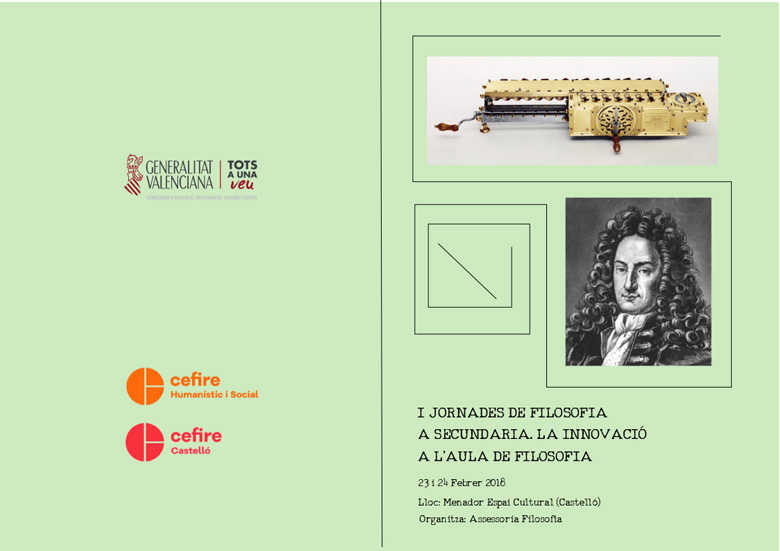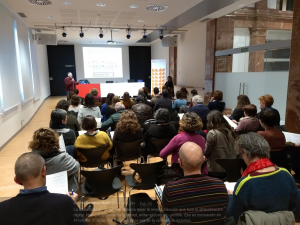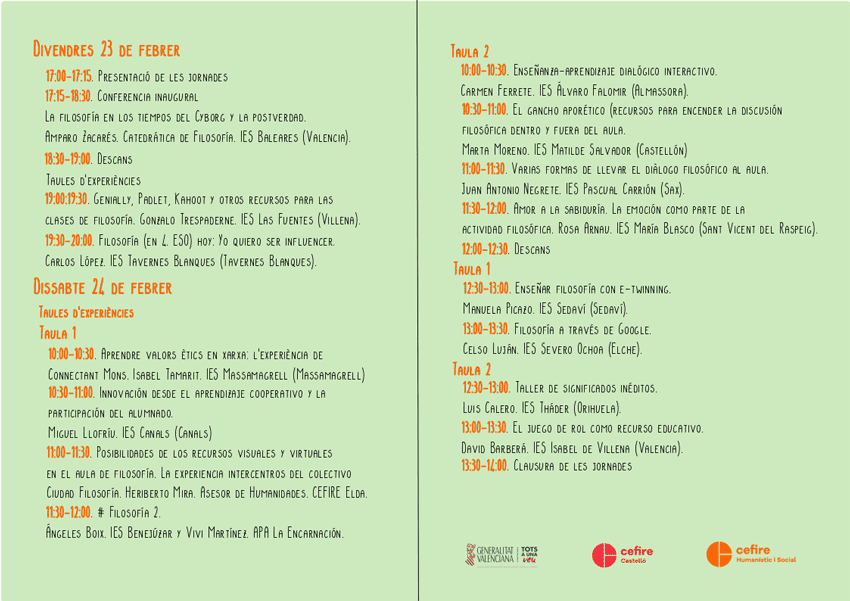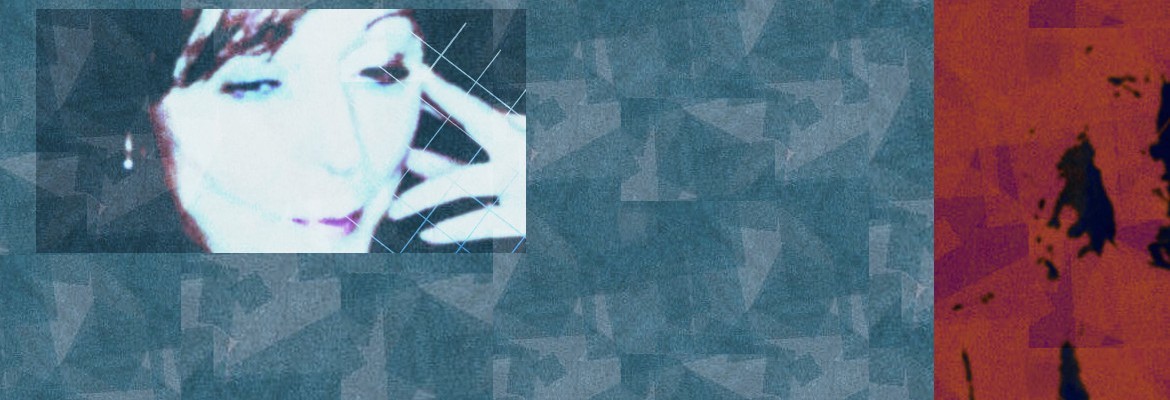
Conferencia inaugural I Jornades de Filosofia a Secundaria. La Innovació a l’Aula de Filosofia.
23 de febrero de 2018. Lloc: Menador Espai Cultural (Castelló).
Descargar Conferencia «La filosofía en los tiempos de cybrog de la posverdad» (archivo pdf).
RESUMEN
La enseñanza-aprendizaje de la filosofía, en una época de aceleracionismo tecnológico e hiperconectividad global, ha de conservar toda la carga emancipadora de sus orígenes. Las nuevas tecnologías bien usadas pueden ser una herramienta pedagógica muy potente para un futuro posthumano que logre corregir algunas de las deficiencias que el ser humano no ha podido solventar. De este modo la innovación educativa en filosofía ha de prestar atención a cuatro tipos de alfabetización: digital, de género, audiviosual y ético-estética y velar por no cerrar los problemas que se dan por superados. Para ello el método botton-up que en 2007 expuso la consultora McKinsey, se ha revelado el más exitoso en educación y requiere que el profesorado aprende entre sí, compartiendo sus mejores prácticas ante sus pares. Experiencias que finalmente serán registradas y distribuidas para mayor difusión y conocimiento
Palabras clave
globalización, hiperconectividad, aceleracionismo tecnológico, afabetización digital, alfabetización de género, alfabetización audiovisual, alfabetización ético-estética.
PHILOSOPHY IN THE TIME OF POST-TRUTH AND THE CYBORG

ABSTRACT
At a time of technological accelerationism and global hyperconnectivity, the teaching and learning of philosophy ought to preserve the emancipatory onus of its origins. Properly used, the new technologies can act as a powerful pedagogical tool for a posthuman future, one that can correct some of the deficiencies that human beings have not been able to transcend. This way, educational innovation in philosophy ought to take into account four types of alphabetisation –digital, gender-based, audiovisual, and ethico-aesthetical– and to keep questions open-ended. To do this, the bottom-up method outlined by the consultancy McKinsey in 2007 has proven to be the most successful in education. It requires teachers to learn from one another, sharing their experiences with their peers and distributing them for greater diffusion.
Keywords: technological accelerationism, global hyperconnectivity, alphabetisation –digital, gender based, audiovisual, and ethico-aesthetical

